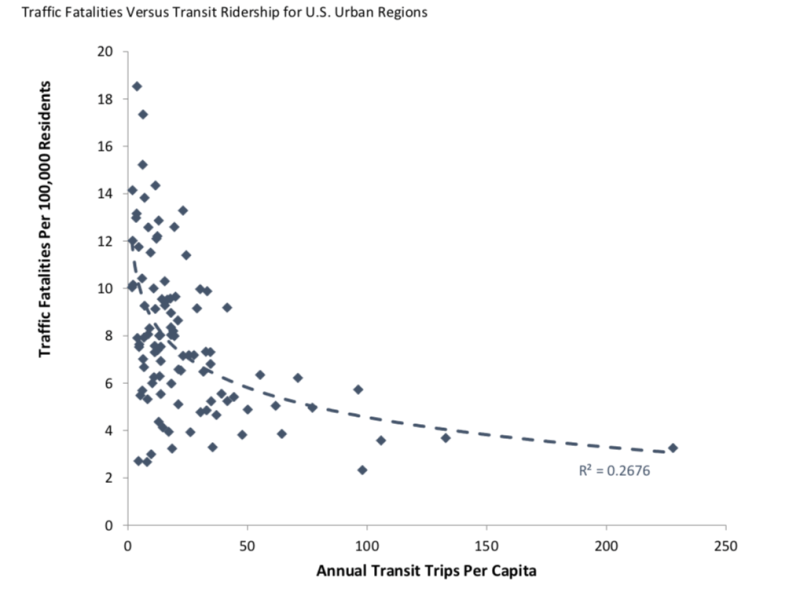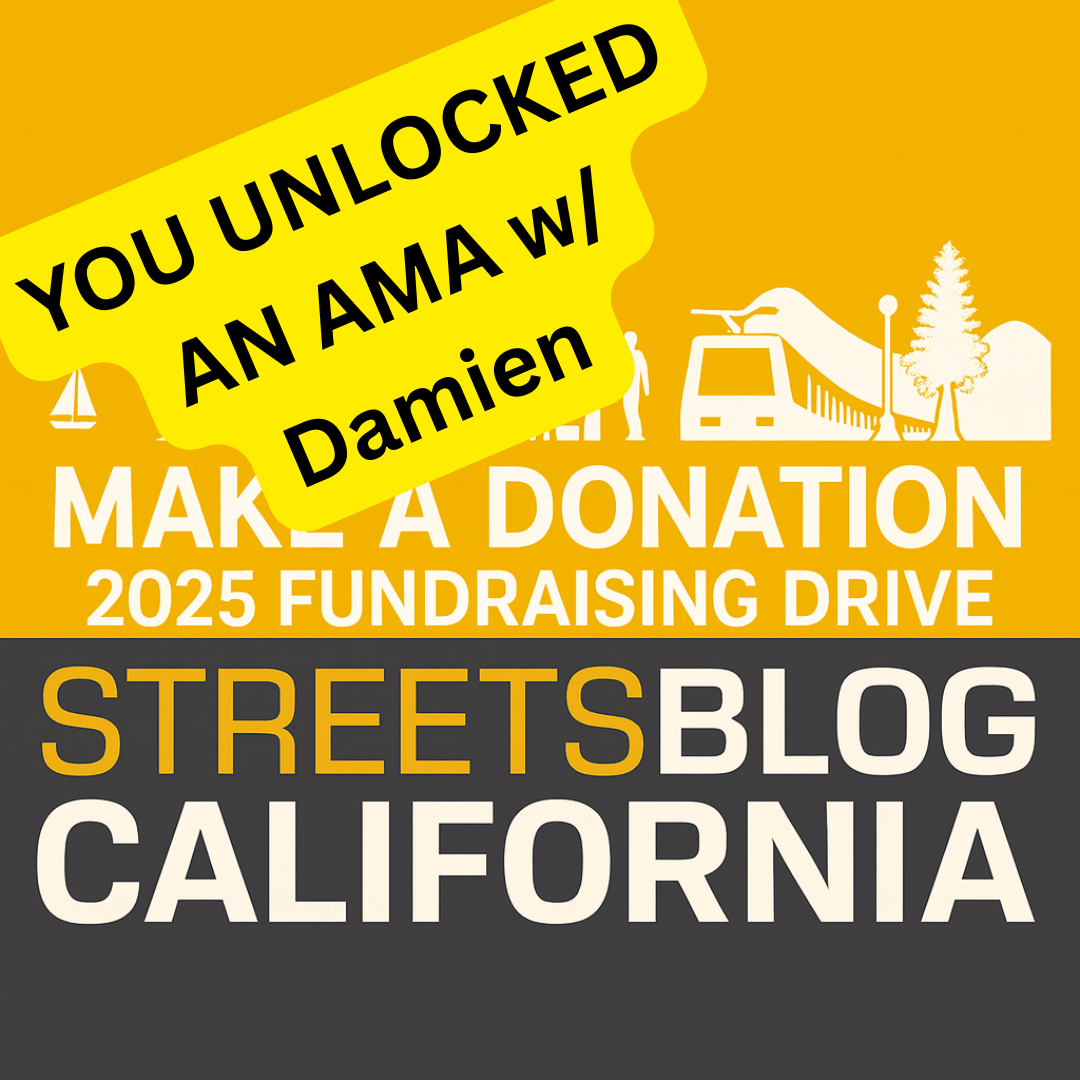Mass transit = massive safety.
A new analysis of traffic fatalities by the American Public Transit Association found that cities with the most transit trips per capita had roadway death rates that were roughly half those of cities that rely too much on the car.
"Public transit is an effective and we believe essential solution to helping communities move toward zero deaths on the road," APTA CEO Paul Skoutelas told reporters in a briefing on the report [PDF] on Wednesday.
For example, Boston — which ranks near the top in per capita transit trips — has a traffic death rate of about 2.3 per 100,000 people, while Birmingham, Alabama, which is near the bottom for transit ridership, has a death rate of 18.53 per 100,000, or eight times higher.
The report shows that it doesn't take much to make a big difference in safety. Cities such as Los Angeles, Portland and Seattle, with more than 50 annual transit trips per capita, have death rates that are roughly half those of cities whose residents average 20 annual trips or fewer, APTA reports.
Transit is not only safer for the obvious reason — trains and buses are safer than cars — but because communities built around transit tend to have safer walking and biking amenities, fewer parking lots and safer street design. Such features, as well as higher population density, make it easier for people to make shorter car trips, or avoid them all together — reducing their overall exposure to crashes.
Good transit also encourages many high-risk drivers — teenagers, older adults or drunks — to stay off the roads. And policies such as raising the driving age or tightening penalties for drunk driving work better when there are viable travel alternatives, APTA says.
"Public transportation provides us a choice, a choice not to drink and drive... A choice that can really save our lives," said Bella Dinh-Zarr, a board member at the National Transportation Safety Board, told reporters in the briefing.
Nonetheless, national traffic safety agencies have not latched onto transit to help keep people safe, even as deaths have soared in recent years — partly because of some long-standing institutional practices that obscure the benefits of transit. For example, the National Highway Traffic Safety Administration measures traffic safety progress on a per-million-miles-traveled basis. Such a metric obscures the safety benefits of simply reducing driving overall in favor of transit.
The U.S. has made great strides in reducing traffic deaths per million miles driven over the last few decades, with advances like air bags and greater recognition of the dangers of drunk driving. At the same time, much of the safety gains have been eroded by increases in miles driven. In terms of traffic fatalities per capita, American traffic safety outcomes have been falling behind peer nations, many of which have made much more substantial investments in transit.
"This has been a long overlooked and undervalued strategy," Leah Shahum, director of the Vision Zero Network, said on the briefing call.
APTA hopes the study will encourage increased transit funding. But the group also calls on cities and institutions to develop incentives — such as discounted fares — and disincentives, such as charging for parking by the day, to encourage drivers to switch to transit.
Cities can also plan better, encouraging residential development in areas well served by public transit.






